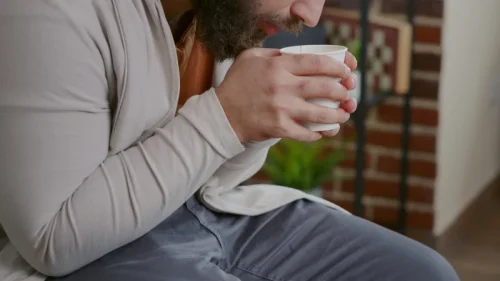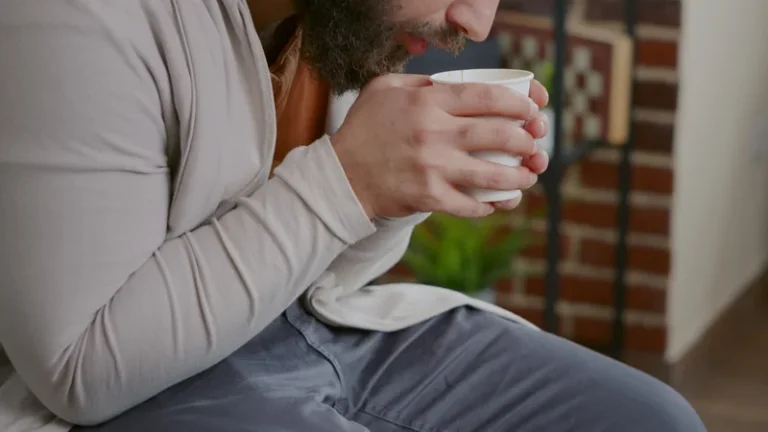If you experience any of these symptoms after drinking, talk to your doctor about the best way to move forward. «Alcohol intolerance is a way of your body informing you that it is rejecting what is being put in it to sneezing after drinking alcohol process,» Sheila Shilati, PsyD, COO of rehab facility Seasons, tells Bustle. Alcohol can worsen your difficulty breathing through your nose, so it’s important to be mindful of how much you consume.
Possible effect of the ingestion of alcohol on allergic rhinitis
The good news is that alcohol intolerance isn’t too much of a concern. The bad news is that you can’t really do much about it, or that unwelcome nasal congestion that comes along with it, aside from just not drinking alcohol. Gas and bloating have a lot of other possible causes, though, so for a more certain diagnosis, talk to your doctor about your symptoms. Others believe it’s just a coincidental occurrence with no real significance. Whatever the source, sneezing after drinking beer is a phenomenon that many people have experienced. It may be nothing more than coincidence, or it could signal the start of legal intoxication.
Genetic Intolerance
Wine and other alcoholic beverages are generally not considered as potential allergens, so if you think you may have an allergy to wine, it is important to get a proper diagnosis. To do this, your doctor may order a skin prick test or a blood test. During the skin prick test, drops of wine are placed on the back of your forearm and the skin is pricked through the liquid.
If you’re allergic to wine, can you be allergic to other things?
- Alcohol can worsen your difficulty breathing through your nose, so it’s important to be mindful of how much you consume.
- Some experts suggest that the reaction may be more related to the type of beer and its hops content than to the alcohol content.
- In fact, a 2017 case study documented an individual who had an allergic reaction after consuming products like beer, wine, cider, and Champagne.
- During a skin prick test, your doctor will use a lancet to prick or scratch your skin.
- Those who are found to have an allergy to a specific ingredient in wine like grapes may need to avoid other foods containing those ingredients.
People who are histamine intolerant can develop symptoms such as sneezing, nausea, vomiting, and headaches after drinking alcohol. Histamine intolerance is caused by a lack of an enzyme called diamine oxidase (DAO). This causes the body to be unable to break down and clear out excess histamines in the body. Finally, the taste of red wine itself can also cause sneezing in some people.
Missing 5-year-old boy’s body found: Sheriff
- For example, if wine makes you sneeze, try drinking vodka or gin instead.
- Reactions of redness or swelling will often occur quickly if you’re allergic to the allergen.
- Watch that glass of red wine or hoppy beer if you have food allergies.
- One of the most common alcohol-related allergic reactions is to wines containing sulfites.
- Avoiding problematic ingredients or taking a supplement to reduce acetaldehyde buildup and intolerance symptoms can help prevent nasal congestion from drinking.
Sunset Alcohol Flush Support is a natural supplement that works specifically to reduce all of these symptoms, including a stuffy nose after drinking alcohol. Sunset works with the body to break down alcohol quickly and effectively, so you don’t experience the negative symptoms. But not many people realize that there are many ingredients, additives, and preservatives within alcoholic beverages that can cause negative side effects.
– it’s time to determine whether this is really a cause for concern or not. This is especially true if you suffer the occasional 2-day hangover. But even with our guide on how to get rid of a hangover, you may want to dig deeper beyond the simple remedies and solutions to determine whether there is a real cause for concern here. Another type of allergen, lipid transfer protein (LTP), is found in fruits, vegetables, nuts, seeds and cereals, and can also be present in some alcoholic drinks. It is important to know that alcohol intolerance can lead to a drop in blood pressure, which can bring on a feeling of faintness or dizziness.
- “Alcohol and sulphites tend to evaporate away during cooking, so the potential for intolerances is certainly reduced,” Dr Watts says.
- Red wine is fermented with the grape skin still on, white wine is not.
- If you experience allergy-like symptoms in response to drinking wine, you should see your doctor.
- Those who already suffer from asthma seem to be more vulnerable,» he said.
hanges In Blood Pressure
Some people with Hodgkin’s lymphoma experience pain after drinking alcohol. Hodgkin’s lymphoma is a type of cancer that can affect your lymphatic system. Many people with Hodgkin’s lymphoma develop enlarged lymph nodes. But in rare cases, they become painful after alcohol consumption. These compounds are often added to beer and wine to limit the growth of yeast and act as a preservative. Common sulfites include potassium bisulfite or potassium metabisulfite.
Sulfites, histamines, and tannins are among some of the substances believed to contribute to a wine intolerance. Although an intolerance may cause similar symptoms to allergies, intolerance is not the same as an allergy. The process starts with an enzyme in your liver, called alcohol dehydrogenase (ADH), which converts ethanol into acetaldehyde.
If you suffer from this perplexing phenomenon, just remember that you’re not alone – and there are worse things in life! Besides, maybe your sneezes are just nature’s way of making sure you don’t have too much fun ;). Thanks for reading and we hope this post has helped to provide some clarity on the matter. If you find that drinking beer makes you sneeze, there are several things you can do to help prevent this from happening. First, try different types of beer to see if some brands don’t make your nose tickle as much.






